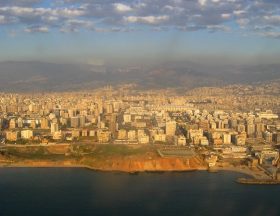The Lebanese economic situation has been deteriorating for several weeks at an accelerated rate. It raises fears of a worsening of macroeconomic parameters and a deterioration of basic living conditions, which could cause an increase in social or even security tensions in the short term.
The exponential collapse of the Lebanese pound is increasing tensions on the parallel foreign exchange market and on foreign currency liquidity. The informal exchange rate reached 140,000 LBP / 1 USD on March 21, 2023 (before returning to oscillate between 100,000 and 110,000), while it stood at 100,000 LBP / 1 USD the previous week. This depreciation trend results from the significant increase in the monetary base in recent months, the general loss of confidence in the Lebanese currency and the loss of effectiveness of monetary policy instruments to regulate inflation and the exchange rate. . Many prices (restaurants, supermarkets) are now denominated in dollars.
Public administrations, whose revenues are denominated in pounds and salaries paid in pounds, can no longer keep up with the rate of depreciation and see the purchasing power of civil servants plummeting. Fundamental public services, such as health and education, risk being interrupted by strike action. Public electricity remains extremely limited (4-5 hours per day) given the absence of budgetary transfers from the State to Electricité du Liban (EDL) and the rationing of foreign currencies by the Banque du Liban.
The last relatively functional public services are entering a critical phase. The water and sanitation stations, unstable and insufficiently supplied with electricity, operate in a very degraded way, which involves environmental, health and social risks. An internet and telephone cut cannot be ruled out in the very short term because the public company Ogero, the sole provider of bandwidth, lacks cash to buy fuel for its generators and meet the salary demands of its employees. .
The collapse in the value of the pound is also reflected in a rapid and continuous increase in basic necessities. Electricity prices, increased at the start of the year, are among the highest in the world. The prices of petrol, diesel and domestic gas, denominated in pounds, are now revalued twice a day by the Ministry of Energy and indexed almost automatically to the price of a barrel of oil and the parallel exchange rate. .
They are thus continuously increasing, having been multiplied by 80 since January 2021 (effect of the total lifting of subsidies) and by 3.5 since September 2022 (effect of the depreciation of the pound). While the increase in food prices has encouraged the growth of the Lebanese agri-food sector, Lebanon still imports around 70% of its needs (compared to 86% before 2019).
The price of local products is also dependent on the cost of transport and the import of raw materials. In addition, the price of bread, a basic element of food in Lebanon, is subject to a scale issued by the Ministry of the Economy, which is increasing this scale more and more frequently. Finally, the daily fixing of drug prices in pounds is also a factor of recurring tension
Source : Embassy of France in Lebanon











Réagissez à cet article